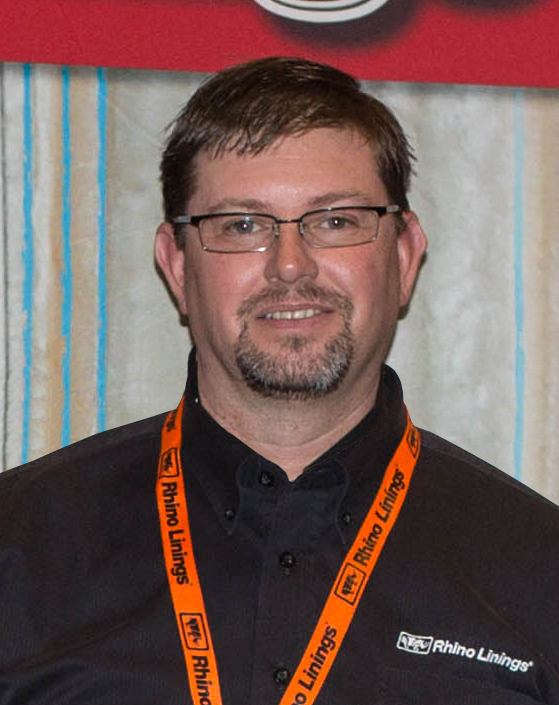
By Travis Chapman, Territory Sales Manager
As with starting any new business, the first few months are critical to a start-up spray polyurethane foam (SPF) contracting company. All too often someone who is new to the industry will decide that they want to go into business for themselves as an SPF contractor, then they experience the following scenario: A driver from XYZ supplier pulls up, drops off a shiny new rig and materials, demonstrates how to turn the proportioner on and off, and then hops back in the delivery truck and drives away.
This is NOT good enough. Inadequately prepared, the newbie improperly applies the SPF, giving himself and the industry a bad reputation.
By Travis Chapman, Territory Sales Manager
As with starting any new business, the first few months are critical to a start-up spray polyurethane foam (SPF) contracting company. All too often someone who is new to the industry will decide that they want to go into business for themselves as an SPF contractor, then they experience the following scenario: A driver from XYZ supplier pulls up, drops off a shiny new rig and materials, demonstrates how to turn the proportioner on and off, and then hops back in the delivery truck and drives away.
This is NOT good enough. Inadequately prepared, the newbie improperly applies the SPF, giving himself and the industry a bad reputation.

Know all the Risks
These types of scenarios are easily avoided. While the success of new contractors is determined by many factors, a strong foundation supported by training, and a solid working relationship between contractor and the supplier are most important in the critical first months in business. Rhino Linings believes that training is the key to success and has built their business around this core value.
When a new-to-the-industry contractor places a call to a supplier, Rhino Linings believes that the scenario should play out along the following lines: First, before any discussion of equipment or materials, the contractor and the supplier should have an open and honest conversation detailing the contractor’s expectations and the reality of the SPF industry – good and bad. As Travis Chapman, Territory Sales Manager for Rhino Linings says, “This approach opens customers’ eyes, and honestly, it scares some. We truly believe that it is our duty and responsibility to be clear and up-front about the challenges they may face starting their new business. The SPF industry has grown significantly in the last 20 years. The failures that were made years ago, before there was training, have made our industry stronger. Many of us got our start in the school of hard knocks; making mistakes and learning from them. Fortunately, since the first spray foam job, the industry has documented the mistakes, and can now ensure those mistakes won’t be made by new contractors.”
Build a Strong Foundation
If, after an honest assessment of the industry and their opportunities in it, the new-to-the-industry contractor still wishes to pursue a career in SPF, the next step in the process is in-depth training. Chapman explains the Rhino Linings process, “We are driven to start our new contractors off as a successful business.” And that means bringing them to the Rhino Linings facility for hands-on classes. “We provide an in-depth look at the chemistry behind how the SPF works and how to properly operate the equipment for consistent results,” he says. “The several days they spend training at our facility only marks the beginning of our relationship. We will continue to support them while they set up their own businesses and if issues arise, we will be there – helping in any way necessary. We provide industry-leading chemicals and on-demand support with the positive, problem-solving attitudes that are often lacking in the SPF industry.”
Training and On-going Support
This belief in training and on-going support is a mandate from the highest levels of the San Diego, California-based company. Chapman describes the staff that honor this promise to their customers, “Our dedicated sales and technical team members were SPF contractors before bringing their expertise to Rhino Linings. This not only allows us to understand exactly how day-to-day operations are performed, but also provides us with insight into all aspects of the SPF business from a view on the ground, to a greater industry vantage point. We understand and are prepared to be available when needed to work through issues when they arise – night or day, weekends, or holidays. We understand that for an SPF contractor, the Earth doesn’t stop revolving at five o’clock. We will go to job sites with technical support, we will work with architectural firms to help with specifications, we will help interface with code officials on our clients’ behalf, and we will even provide marketing support – because we truly understand what it means to be a working SPF contractor.”
While the SPF industry may involve many early mornings and late nights, irregular hours, and far-flung job sites, as a contractor there are many rewards, including independence, a place in an exciting and growing industry, and a supplier dedicated to their success. As Chapman says, “At Rhino Linings, we pride ourselves on being an honest, straightforward chemical supplier that our contractors can rely on. Rather than simply taking and delivering product orders without a second thought, we believe in being a partner in the business. Having built, sold, and supported hundreds of SPF rigs over the last 20 years, and having worked with contractors at thousands of job sites, our knowledge and experience gives new-to-the-industry contractors a competitive advantage. They can have confidence that we have ‘been there, done that’ and will not lead them in the wrong direction. When they succeed, the SPF industry succeeds.”
Rhino Linings Corporation is dedicated to your success. For more details on how to get started in the SPF industry, call 877.358.1320 or visit spf.rhinolinings.com

About the Author
Travis Chapman is the Territory Sales Manager for the Northern region. Travis has extensive industry work experience in the SPF field from R&D, technical, chemical sales, equipment training, classroom instruction as well as on-site trainings.



